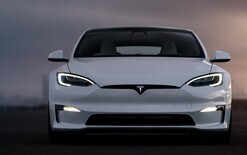Airbags investigated
Posted on 24 August, 2014
Safety regulators in the US are investigating reports that defective Takata inflators ruptured airbags in six vehicles.
As reported in the August 21 issue of Autofile magazine, the current global total of about 10.5 million units means the airbag recall one of the biggest in automotive history. And more than 19,000 vehicles in New Zealand have now been called back because of the issue.
In 2009, two motorists in died after defective inflators sprayed shrapnel into their cockpits, Reuters reported in January. Others have been seriously injured. The National Highway Traffic Safety Administration (NHTSA) in the US says high humidity in Florida and Puerto Rico might have played a role in six ruptured frontal airbags. Its probe covers 2002-06 vehicles made by Honda, Nissan, Mazda, Chrysler and Toyota.
Takata is one of just three key suppliers – along with American company TRW and Stockholm-based Autoliv, which is Swedish and US-owned – that dominate the global airbag market.
Why three companies dominate market
“Barriers to entry market are high,” says Scott Upham, of Valient Market Research, a consulting firm in New York specialising in the airbag industry.
Suppliers need deep-pocket expertise in electronics, explosives, metals and crash tests. Moreover, inflator factories require robots to handle key operations and facilities have to be equipped with blast walls to cope with occasional blow-ups.
“That combination really keeps everybody out,” says Upham. “Some German suppliers thought about getting into this sector, but decided not to because of these issues.”
The industry’s three big players have built inflator plants in arid regions. TRW makes inflators in Mesa, Arizona, while Autoliv has a plant in Brigham City, Utah. Takata’s are in Moses Lake, Washington, and Monclova, Mexico.
The desert is ideal because remoteness limits damage caused by explosions and the dry air means it is easier to shield the inflator’s propellant from moisture.
A Reuters story in January pointed to moisture as the reason behind some inflator malfunctions. Ammonium nitrate, the propellant used in Takata’s, is sensitive to moisture. It can cause the propellant’s wafers to crumble, so it will burn too fast when ignited. When the airbag deploys, that can trigger an explosion.
From 2000-02, Takata’s plants in Washington and Mexico used propellant exposed to moisture. The company fixed the problem, but faulty record-keeping hampered it from identifying the batches. Car makers issued huge recalls to find all defective airbags – about seven million units over the past five years, according to Reuters.
Upham believes vehicle manufacturers will continue doing business with Takata so Autoliv and TRW don’t end up dominating the market, but there may be some opportunities for tier-two suppliers specialising in inflators.
Meanwhile, Takata has forecasted a record annual loss on the call-backs. The net loss will probably be 24 billion yen (about NZ$281 million), the Tokyo-based company says in a statement issued on August 8.
That compares with its previous forecast for 16 billion yen profit. It booked a 45 billion yen one-time charge in the first fiscal quarter on the airbag recalls.
New overall recall record in America
After just seven months of 2014, car makers in the US have broken the record for total vehicles affected by recalls.
General Motors is being investigated for ignition switch defects, while most Japanese marques are embroiled in the Takata airbag scandal.
With the latest additions, the NHTSA has so far recalled 37.5 million units. The previous record was for 30.8m in the whole of 2004. About one-third of recalls in the US so far this year affect General Motors.
Takata is no stranger to large recalls. Several marques called back almost nine million vehicles in 1995 to replace faulty seatbelts made by the parts maker – an industry record at the time.





